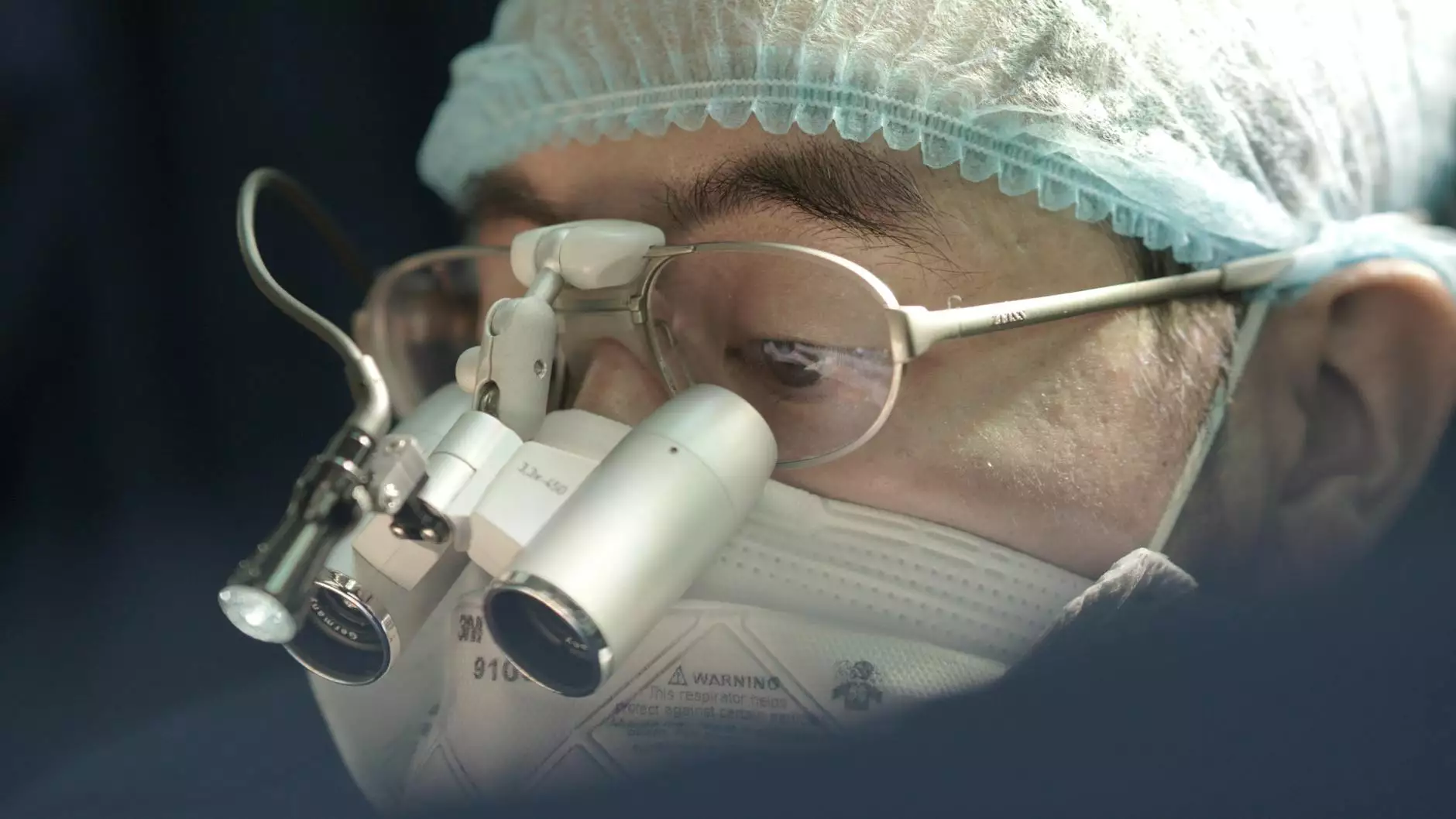Understanding the Risk of Hysterectomy and Your Female Health Options

When it comes to women's health, specialized care by experienced obstetricians and gynecologists plays a crucial role in diagnosing, managing, and treating a wide range of gynecological conditions. Among the most significant surgical procedures in this field is the hysterectomy, a procedure involving the removal of the uterus. While hysterectomy can be life-changing and often necessary, understanding the risk of hysterectomy and alternative options is essential for women making informed health decisions.
Comprehensive Overview of the Hysterectomy and Its Significance
Hysterectomy is a surgical intervention primarily performed to address conditions such as fibroids, endometriosis, uterine prolapse, abnormal bleeding, and certain cancers. The procedure involves removing the uterus, which may be complete or partial, depending on the medical indication. Though generally safe, like all surgeries, it carries potential risks and implications for a woman's health and well-being.
Factors Influencing the Risk of Hysterectomy
Understanding the risk of hysterectomy involves analyzing several factors, including age, underlying health conditions, the severity of the gynecological disorder, and the availability of alternative treatments. Here's a detailed look at these factors:
- Age and Reproductive Status: Younger women, especially those of reproductive age, often explore conservative or less invasive treatments to preserve fertility. Older women may have different risk profiles, especially if fertility preservation is not a concern.
- Severity and Type of Condition: Conditions like large fibroids, significant bleeding, or malignant tumors may necessitate hysterectomy, increasing its consideration as a treatment option.
- Alternative Treatment Options: The availability and effectiveness of medical management or minimally invasive procedures can influence the decision-making process, impacting the risk of hysterectomy.
- Overall Health and Comorbidities: Factors such as obesity, cardiovascular health, and other chronic conditions may elevate surgical risks.
Potential Risks Associated with Hysterectomy
While hysterectomy is a common surgical procedure performed by skilled Doctors, Health & Medical, Obstetricians & Gynecologists, understanding its potential risks is vital for anyone considering it. These risks include:
- Infection: Post-surgical infections at the site of operation or systemically.
- Bleeding and Hemorrhage: Excessive bleeding requiring transfusions or additional interventions.
- Reactions to Anesthesia: Allergic reactions or complications from anesthesia administration.
- Damage to Nearby Organs: Such as the bladder or intestines during the surgery.
- Pelvic Floor Dysfunction: Possible issues with bladder or bowel control following the procedure.
- Menopausal Symptoms: If ovaries are removed, abrupt menopause symptoms such as hot flashes, mood swings, and osteoporosis risk may occur.
- Emotional and Psychological Impact: Feelings of loss or changes in body image and sexuality.
Minimizing the Risk of Hysterectomy Through Modern Gynecological Care
Advancements in medical technology and surgical techniques have significantly reduced the risk of hysterectomy and improved patient outcomes. Here are some ways that expert gynecologists, especially those specializing in minimally invasive procedures, are making a difference:
- Advancement in Robotic and Laparoscopic Surgery: These approaches allow for precise, minimally invasive surgeries with smaller incisions, less pain, and quicker recovery.
- Personalized Treatment Planning: Tailoring treatments based on individual health profiles and preferences decreases unnecessary surgeries.
- Use of Uterine-Sparing Procedures: Procedures such as myomectomy or endometrial ablation aim to treat specific conditions without removing the uterus.
- Medical Management and Lifestyle Changes: Hormonal therapy, dietary modifications, and physical therapy can sometimes manage symptoms effectively, reducing the need for invasive surgery.
- Early Diagnosis and Monitoring: Regular gynecological check-ups enable early detection of issues, which can often be managed conservatively.
Are There Alternatives to Hysterectomy?
Yes, in many cases, women can explore alternative treatments that mitigate health risks and preserve fertility. These include:
- Myomectomy: Surgical removal of fibroids while leaving the uterus intact.
- Endometrial Ablation: A procedure to destroy the uterine lining to reduce abnormal bleeding.
- Uterine Artery Embolization: Minimally invasive procedure to shrink fibroids by blocking blood supply.
- Hormonal Therapies: Use of medications like GnRH analogs or birth control pills to manage symptoms.
- Lifestyle and Nutritional Support: Diet, exercise, and stress management strategies to improve overall gynecological health.
Women’s Health and the Role of Expert Obstetricians & Gynecologists
Choosing a skilled Doctor, specializing in Obstetricians & Gynecologists at a trusted health facility like drseckin.com is fundamental for comprehensive care. These specialists conduct detailed evaluations, provide personalized guidance, and utilize advanced surgical techniques to minimize risks associated with hysterectomy.
From initial diagnosis to post-treatment follow-up, an expert gynecologist ensures that every aspect of your health is carefully monitored and managed. They can help you weigh the benefits and risks of hysterectomy versus alternative procedures, empowering you to make choices aligned with your health goals and lifestyle.
How to Prepare for a Gynecological Surgery and Reduce Risks
Proper preparation and understanding of the procedure are essential to minimize potential complications:
- Pre-Surgical Assessments: Blood tests, imaging, and health evaluations to determine suitability for surgery.
- Medication Management: Discuss all medications and supplements with your doctor before surgery.
- Lifestyle Optimization: Maintaining a healthy weight, quitting smoking, and managing chronic health conditions.
- Postoperative Care: Follow your healthcare provider’s instructions regarding activity, diet, and wound care.
- Psychological Support: Seek counseling or support groups if emotional impact concerns arise.
Empowering Women Through Knowledge and Expert Guidance
Understanding the intricate details surrounding the risk of hysterectomy enables women to make informed healthcare decisions. The key is to consult with experienced specialists who prioritize patient education, offer minimally invasive options, and respect individual health goals.
Whether your concern involves fibroids, abnormal bleeding, or other gynecological conditions, modern medical advances now provide safer, personalized treatment pathways. At drseckin.com, you will find the expert care you need for optimal female reproductive health, helping you avoid unnecessary risks and maintain your quality of life.
Conclusion: Prioritize Your Health and Consult Experienced Specialists
In summary, the risk of hysterectomy can be significantly influenced by medical choices, surgical techniques, and individual health factors. With the right information and expert guidance, women can explore effective alternatives, undergo safe procedures, and enjoy comprehensive care tailored to their unique needs.
If you're seeking trusted, experienced Doctors, Health & Medical, Obstetricians & Gynecologists committed to women's health, visit drseckin.com to learn more about innovative treatments and personalized care options. Empower your health today through expert consultation and proactive management.








